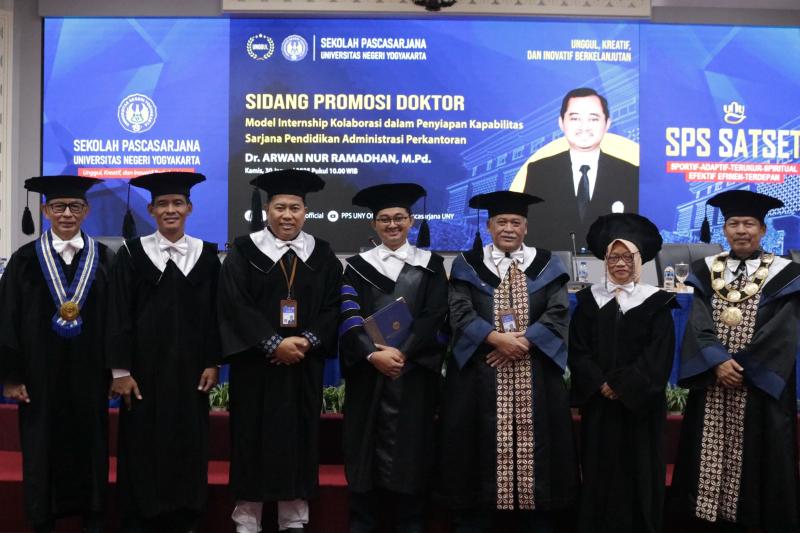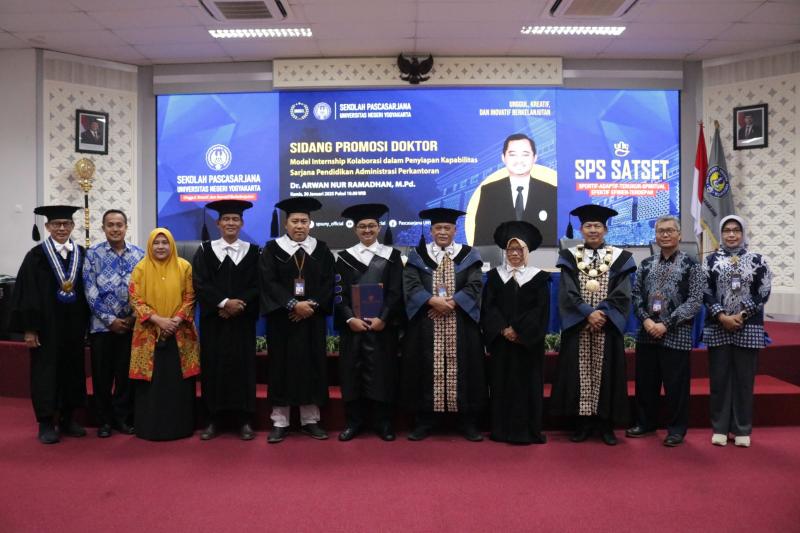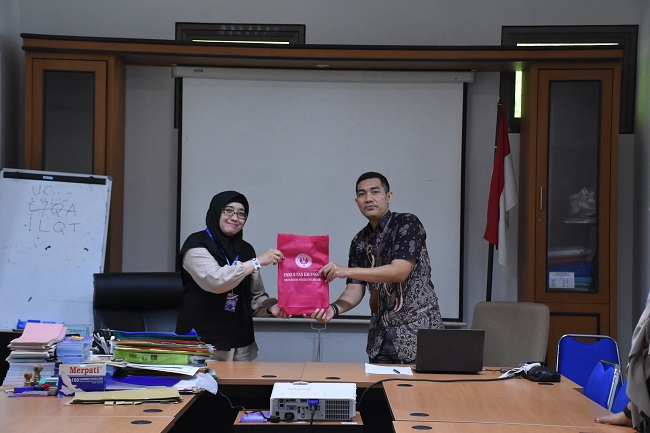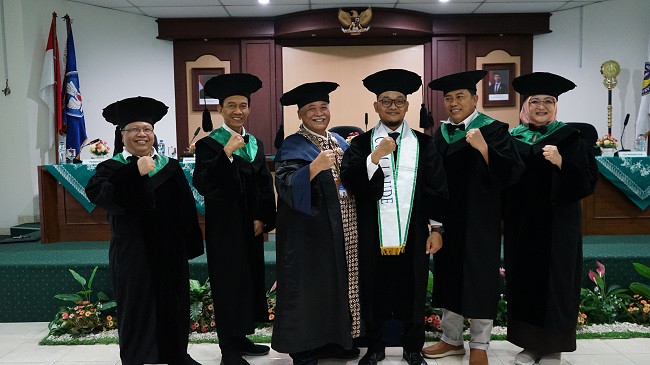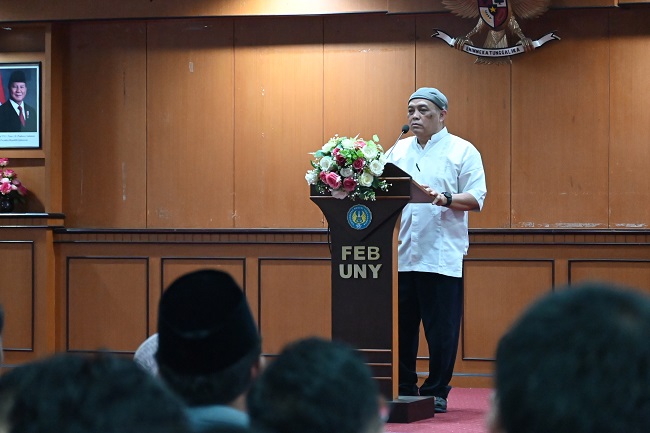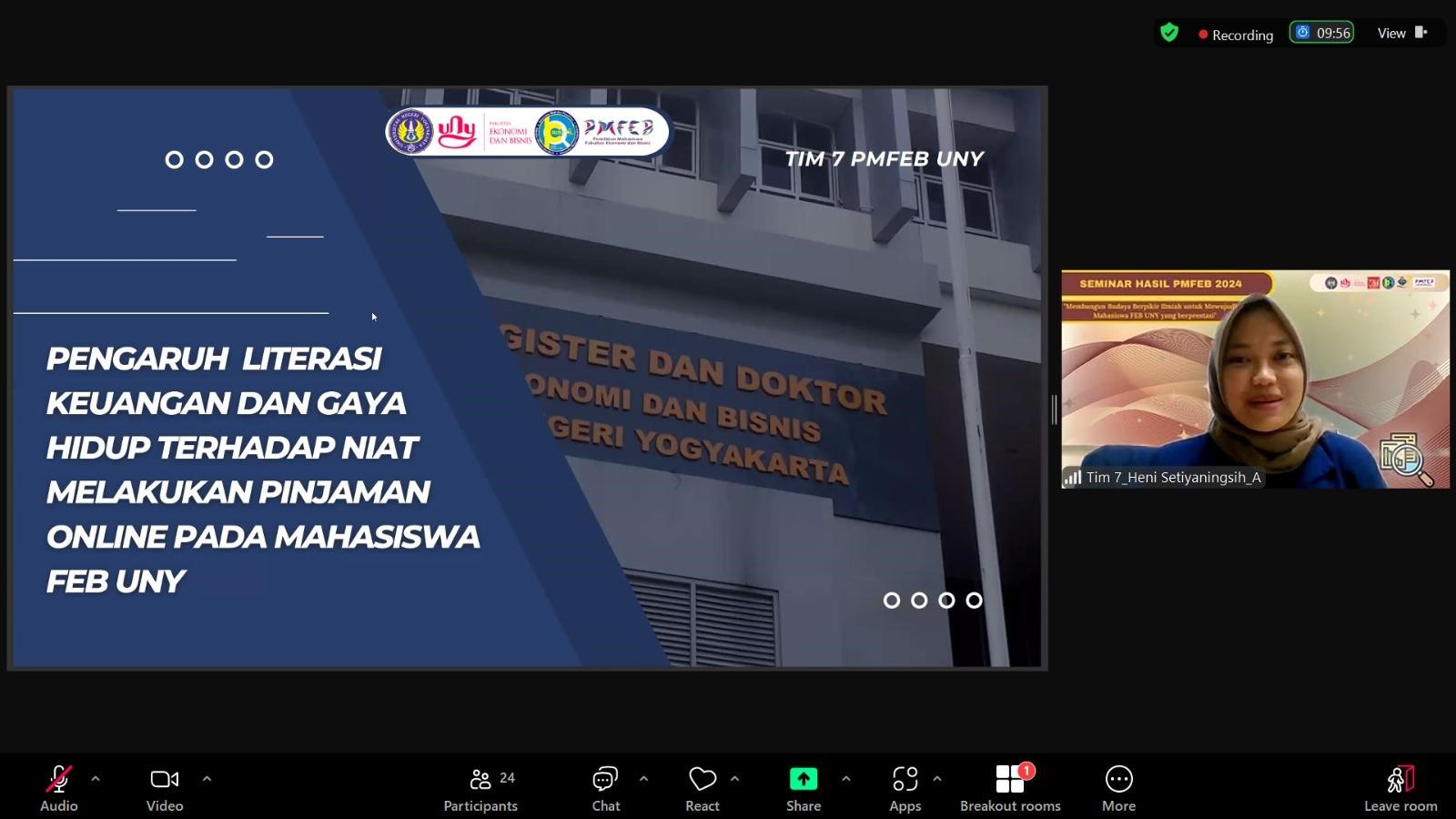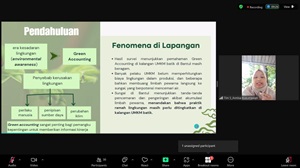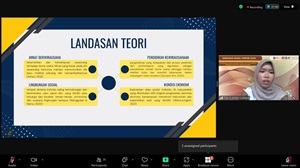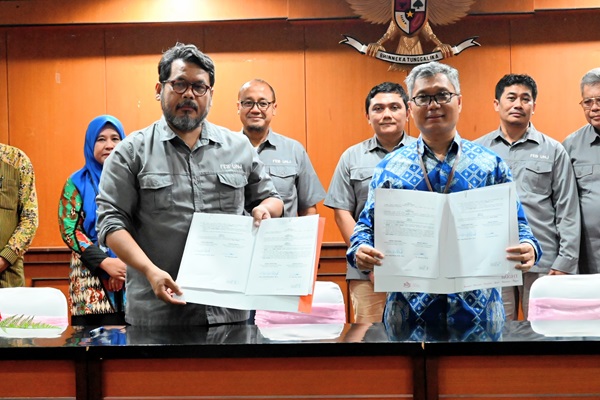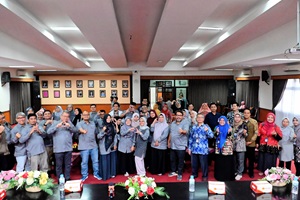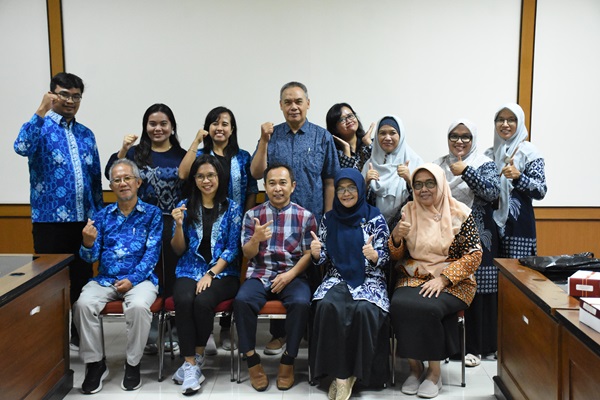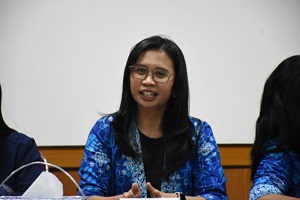Andy Dermawan: Komitmen dan Konsisten Kunci Raih Istiqomah
Submitted by feb on Sun, 16/02/2025 - 09:02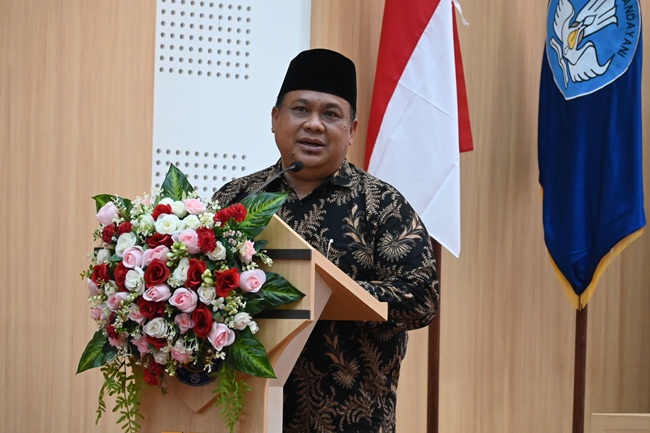
Fakultas Ekonomi dan Bisnis Universitas Negeri Yogyakarta (FEB UNY) menggelar Pengajian Keluarga Besar pada Jumat (14/02/25) di Ruang Teater Gedung PMD FEB UNY. Acara ini dihadiri oleh 150 peserta yang terdiri dari dosen, tenaga kependidikan, perwakilan organisasi kemahasiswaan, serta Dharma Wanita Persatuan FEB UNY. Pengajian ini menghadirkan ustadz Dr. H. Andy Dermawan, M.A., dosen Universitas Islam Negeri Sunan Kalijaga Yogyakarta, dengan tema "Membangun Kekuatan Spiritual dan Mental di Bulan Ramadhan."
Acara diawali dengan pembacaan ayat suci Al-Qur'an dari Surat Al-Baqarah ayat 183-185 oleh Yoga Mardiansah, mahasiswa Prodi Pendidikan Administrasi Perkantoran Departemen Pendidikan Administrasi FEB UNY. Dalam sambutannya, Wakil Dekan Bidang Perencanaan, Keuangan, Umum, dan Sumber Daya (PKUSD) FEB UNY, Dr. Mustofa, M.Sc., menyampaikan apresiasi atas kontribusi dosen dan tenaga kependidikan dalam dana keshalihan berupa zakat, infaq, dan sedekah. Ia berharap pengajian ini dapat memberikan motivasi dan semangat bagi seluruh civitas academica dalam berkarya dan meningkatkan produktivitas.
Dalam tausiyahnya, Dr. H. Andy Dermawan, M.A., menyampaikan bahwa setiap manusia lahir dalam keadaan fitrah. Oleh karena itu, orang tuanya sangat berperan dalam memberi teladan dan membentuk karakter serta kepribadian di kehidupan mendatang. Andy melanjutkan, para ulama mendorong umat Islam untuk membangun kebiasaan baik, seperti dzikir dan mengucapkan kalimat thoyibah, untuk membentuk nilai-nilai yang positif dalam kehidupan sehari-hari.
"Hadisnya memang berbunyi barangsiapa di akhir hayatnya mengucapkan laailaaha illallaah, maka dia masuk surga. Namun, dalam praktiknya tidaklah sesederhana itu. Hal ini membutuhkan habituasi atau pembiasaan," terangnya. Dengan konsistensi dan komitmen dalam menjalankan kebiasaan baik, seseorang dapat mencapai istiqomah. Bulan Ramadhan, menurutnya, adalah momentum terbaik untuk memperkuat mental dan spiritual agar tetap terjaga selama 11 bulan berikutnya.
Dengan semakin dekatnya Ramadhan, Andy mengingatkan tentang pentingnya membentuk kebiasaan baik sejak dini serta menjadikan bulan Ramadhan sebagai ajang refleksi diri dan peningkatan spiritualitas. Acara ini diharapkan dapat memperkuat kebersamaan di lingkungan FEB UNY serta meningkatkan semangat dalam menjalankan ibadah dan aktivitas akademik dengan lebih bermakna. (Ist)





